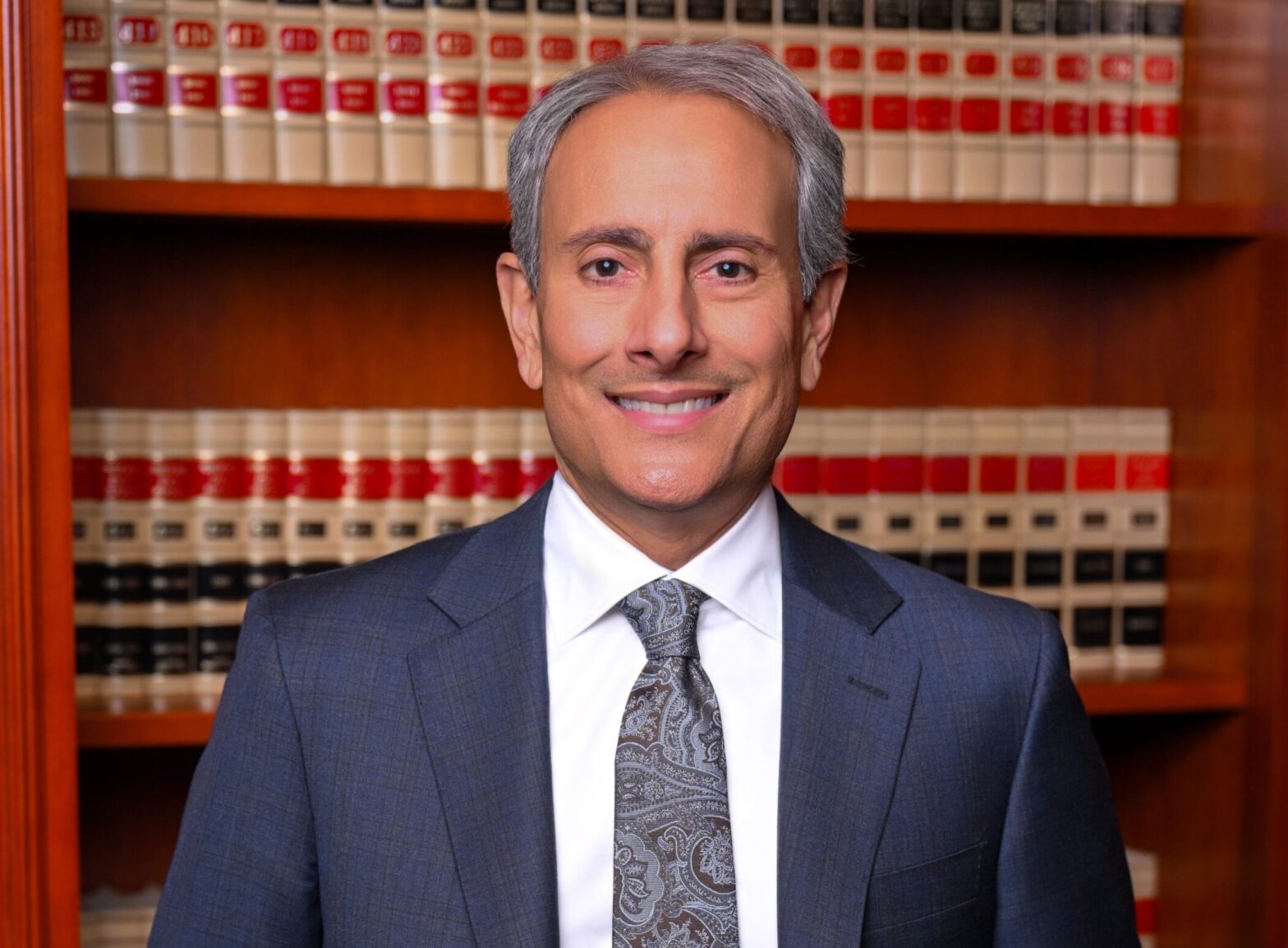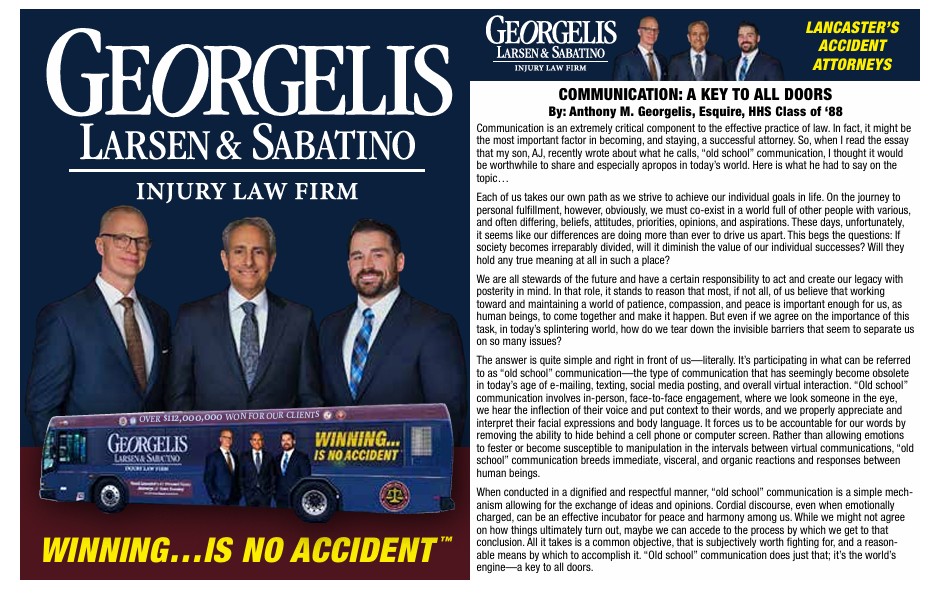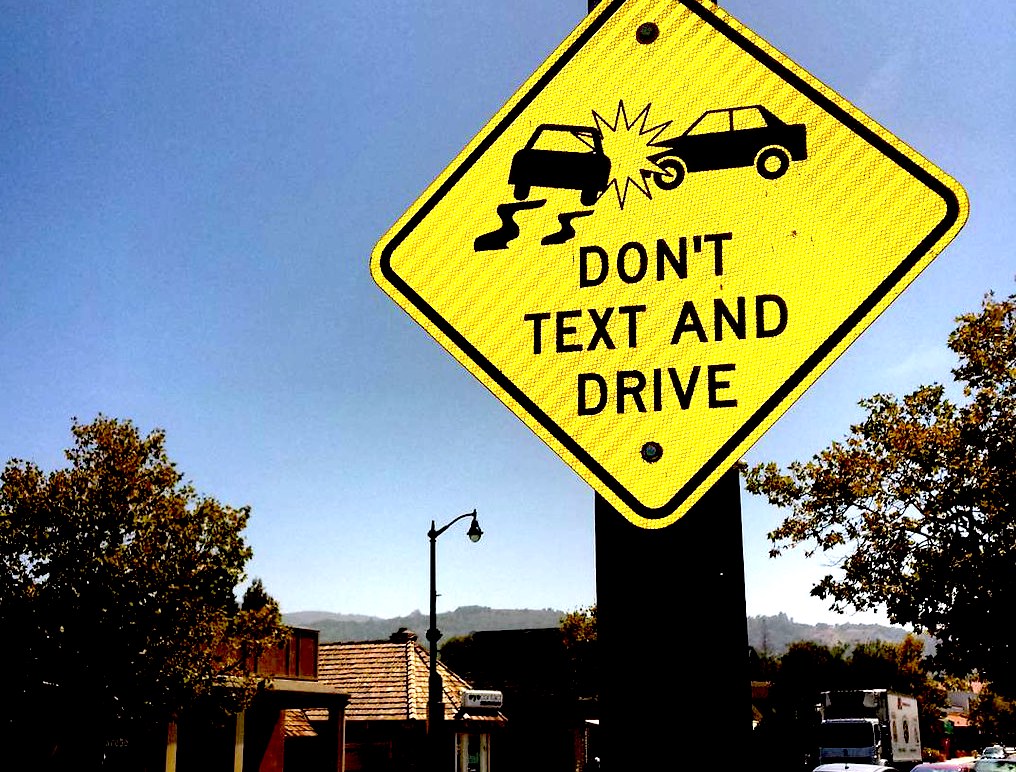
Born and raised in Lancaster County, our firm’s founder, Attorney Anthony M. Georgelis, is committed to giving back to the community that shaped him—not just through trusted legal representation, but also through thought leadership and meaningful dialogue. Whether in the courtroom or the community, Tony values the importance of connection, perspective, and integrity.
Recently, Attorney Georgelis shared his perspective in an article written for the Hempfield Roundtable, a publication distributed to the residents of Hempfield School District. As a proud graduate of Hempfield High School’s Class of 1988, Tony continues to stay involved in the district, mentoring students and contributing insights rooted in decades of legal experience and community engagement.
In his latest article, titled “Communication: A Key to All Doors,” Tony explores one of the most essential—and increasingly rare—tools for connection in today’s fast-paced world: face-to-face communication. Sparked by a thought-provoking essay written by his son, AJ, the piece reflects on the timeless value of “old school” communication and the power of in-person, heartfelt conversation in a society that often leans too heavily on screens, texts, and digital messages.
As Tony shares, this type of communication is not only vital in the practice of law, but in life itself. It’s a reminder that true understanding, respect, and unity often begin with something as simple—and as powerful—as looking someone in the eye and having a real conversation.
Let’s take a closer look at the full article, which serves as both a personal reflection and a timely message we can all take to heart.
Communication: A Key to All Doors
Communication is an extremely critical component to the effective practice of law. In fact, it might be the most important factor in becoming, and staying, a successful attorney. So, when I read the essay that my son, AJ, recently wrote about what he calls, “old school” communication, I thought it would be worthwhile to share and especially apropos in today’s world. Here is what he had to say on the topic…
Each of us takes our own path as we strive to achieve our individual goals in life. On the journey to personal fulfillment, however, obviously, we must co-exist in a world full of other people with various, and often differing, beliefs, attitudes, priorities, opinions, and aspirations. These days, unfortunately, it seems like our differences are doing more than ever to drive us apart. This begs the questions: If society becomes irreparably divided, will it diminish the value of our individual successes? Will they hold any true meaning at all in such a place? We are all stewards of the future and have a certain responsibility to act and create our legacy with posterity in mind. In that role, it stands to reason that most, if not all, of us believe that working toward and maintaining a world of patience, compassion, and peace is important enough for us, as human beings, to come together and make it happen. But even if we agree on the importance of this task, in today’s splintering world, how do we tear down the invisible barriers that seem to separate us on so many issues?
The answer is quite simple and right in front of us—literally. It’s participating in what can be referred to as “old school” communication—the type of communication that has seemingly become obsolete in today’s age of e-mailing, texting, social media posting, and overall virtual interaction. “Old school” communication involves in-person, face-to-face engagement, where we look someone in the eye, we hear the inflection of their voice and put context to their words, and we properly appreciate and interpret their facial expressions and body language. It forces us to be accountable for our words by removing the ability to hide behind a cell phone or computer screen. Rather than allowing emotions to fester or become susceptible to manipulation in the intervals between virtual communications, “old school” communication breeds immediate, visceral, and organic reactions and responses between human beings.
When conducted in a dignified and respectful manner, “old school” communication is a simple mechanism allowing for the exchange of ideas and opinions. Cordial discourse, even when emotionally charged, can be an effective incubator for peace and harmony among us. While we might not agree on how things ultimately turn out, maybe we can accede to the process by which we get to that conclusion. All it takes is a common objective, that is subjectively worth fighting for, and a reason able means by which to accomplish it. “Old school” communication does just that; it’s the world’s engine—a key to all doors.
See the full article in Hempfield School District’s Roundtable publication, here.





